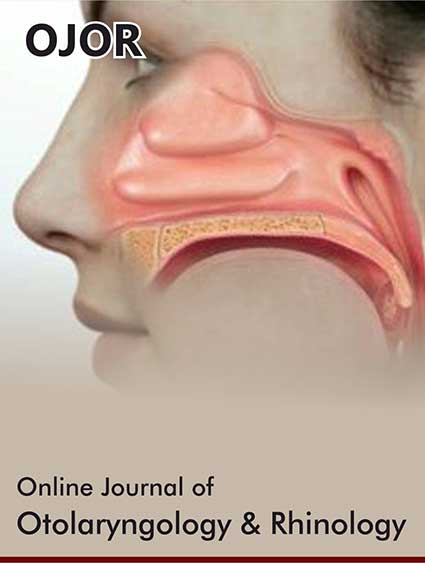 Review Article
Review Article
Loss of Smell is a Big Loss
Fahim Ahmed Shah, ENT Specialist, Sur Hospital, Oman.
Received Date: June 11, 2019; Published Date: July 26, 2019
Abstract
Olfaction is the sense of smell. Olfaction, along with taste, is a form of chemoreception. This sense is mediated by specialized sensory cells of the nasal mucosa, the main olfactory system detects volatile chemicals, which are present in the surroundings. The chemicals which activate the olfactory system, are called odorants. Odorants must be volatile to reach nose, must be water-soluble to penetrate mucus must be lipid-soluble to bind to receptors. The sense of smell is very vital to our everyday existence it determines flavor of foods and beverages and has significant role in nutrition safety and in the maintenance of quality of life but often downplayed as most people think that it is sufficient to know that they smell with their noses and are not concerned with the intricate details but this is a serious mistake to make because occasionally the loss of smell is the first sign of other disorders Anosmia may be a marker for certain conditions and diseases and many different conditions can lead to anosmia. Smell is essential elements of everyone’s life, and it is not possible to ignore the details of such a great blessing. It can also be an early sign of hazardous health problems. Roughly two percent of people say that they have a smell disorder. People who have smell loss either have a loss in their ability to smell or have changes in the way they perceive odors. Anosmia is the total inability to detect odors at all. Hyposmia is a reduced ability to detect odors. Partial Anosmia is the inability to smell few odorants Specific Anosmia is the lack of ability to smell one or a few particular odorants Hyperosmia is abnormally acute smell function and often interpreted as hypersensitivity to odors Dysosmia is distorted or perverted smell perception Smell disorders have many causes, with some more obvious than others. Usually people who develop a smell disorder have a recent injury or illness. Sometime people notice that odors are distorted or that something that normally smells pleasant now smells foul. Some people may sense an odor that is not there at all.
-
Fahim Ahmed Shah. Loss of Smell is a Big Loss On J Otolaryngol & Rhinol. 1(5): 2019. OJOR.MS.ID.000523.





